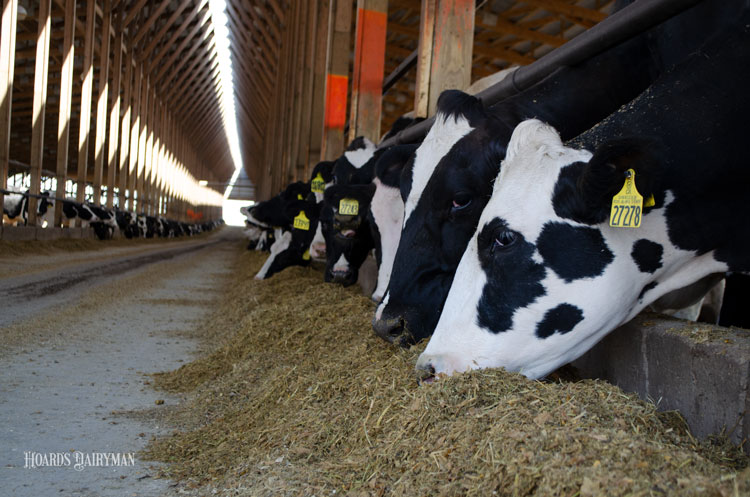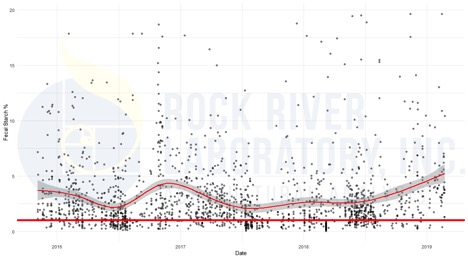
If you’ve ever had gelled diesel fuel in your tractors or trucks, you know it makes it pretty difficult to get the engine running. This past crop year’s starch found in corn silage and corn grain appears to be feeding like gelled diesel.
It shouldn’t be like this.
Silages and grains fermenting for five to six months should be feeding well with starch digestibility not holding your herd back. Yet, many herds are struggling to optimize performance while components are up substantially. One contributing factor looks to be lingering sub-optimal starch digestion.
For farms across the U.S. in March, we’re recognizing substantial issues with silage and grain rumen starch digestibility. The University of Wisconsin-Madison’s Randy Shaver and the University of Florida’s Luiz Ferraretto have shared that rumen and total tract starch digestibility (TTSD) are highly correlated.
TTSD can be determined via fecal starch, and Figure 1 showcases fecal starch results for many dairies. The dairy fecal starch results (percent of manure dry matter) corroborate poor silage and grain digestibility and help explain the lack of milk making punch in many dairy diets this year.
The new goal for dairy fecal starch is less than 1 percent of dry matter (DM), as discussed in a recent Hay & Forage Grower article, “Manure Check on Aisle 4.” The difference between 1 percent (goal) and 5 percent fecal starch (current lab average) equates to 94 versus 99 percent TTSD.
A 5 percent fecal starch level might have been acceptable years ago, but today with a diet that’s 28 percent starch, this means 1 pound of corn grain goes undigested. That is 6 to 8 cents per cow in wasted feed costs without even considering the energy value.
Moving forward
Don’t assume your silage or high-moisture corn is feeding well just because it’s been in the silo for five or more months. Check with your nutritionist for his or her thoughts on your herd’s starch digestibility and potential.
If starch digestibility has room to gain, check corn grain particle size, and consider adding raw corn starch, rolled or ground softer grains (wheat or barley), or other research-backed nutrition options to cut back on the turkey feed (bypass starch) in your manure lagoons.









